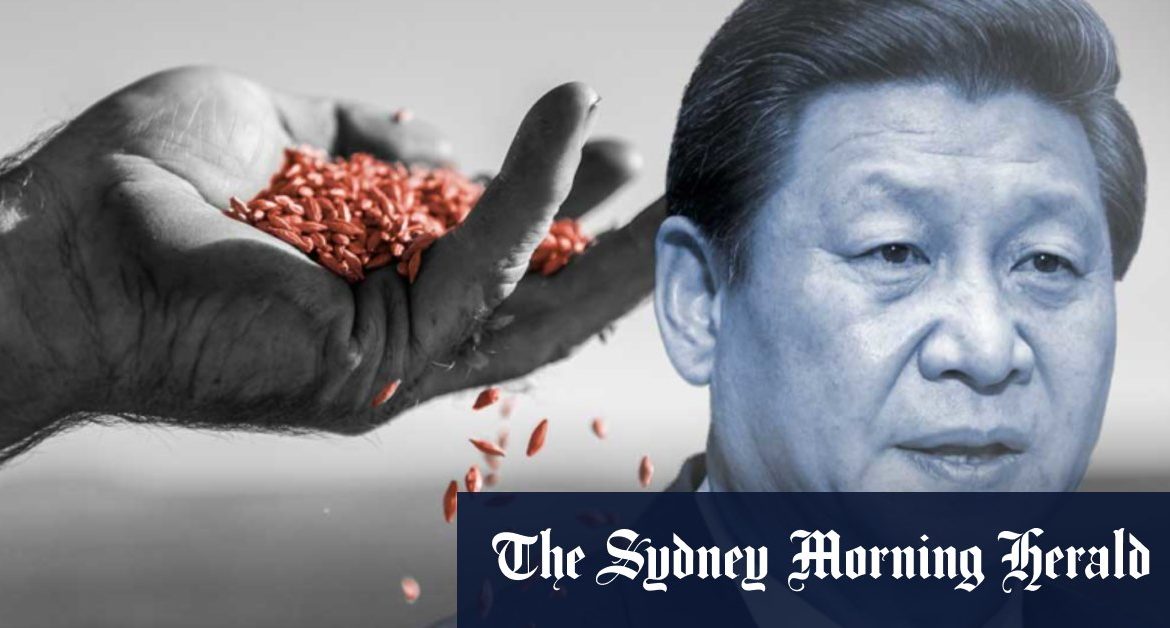The level of reprisal by China this year has left the bilateral relationship at its lowest point in decades. China has arbitrarily delayed the unloading of millions of tonnes of coal at its ports and imposed tariffs on Australian produce, including barley, beef and wine – moves that Trade Minister Simon Birmingham says are in breach of the nations’ free trade agreement. The Morrison government is now likely to take the barley tariff dispute to the World Trade Organisation.
These slaps mark a kind of petulance on China’s part, and it is time Australia’s allies recognised it.
Former foreign minister Alexander Downer has been particularly strident about it. In a report to be published this week, Mr Downer chastises previous conservative British governments for pursuing “superficial” policies towards China based on “nothing more than pecuniary ambition”.
“China has become increasingly aggressive and in many respects hostile to the interests of the Western world,” he says.
These are startlingly strong comments by a seasoned conservative politician and former High Commissioner to London who, as it happens, took coin from Huawei for three years by serving on its board.
Indeed, while representing Huawei in 2012, Mr Downer urged businesses not to be “paranoid about Chinese investment” and for Australia to “transmit the right message” and work closely with China.
This year, though, Mr Downer has castigated China’s ambassador for advocating trade retaliation if Australia was “not so friendly, even hostile”. In May, he called out China’s “wolf warrior” diplomacy, saying President Xi Jinping had “pursued the most aggressive foreign policy since the end of the cultural revolution”.
Mr Downer apparently has come a long way since defending Huawei and is now rightly concerned about China’s increasingly assertive ambitions. He has previously urged “strong, thoughtful and decisive leadership” from Western nations in their approach to China.
Loading
Certainly, Britain has shifted from its previously parochial focus on bilateral trade to consider wider issues such as China’s potential threats to national security; its heavy-handed intervention in Hong Kong; human rights abuses; and more.
Germany is watching the deterioration of Australia-China relations with concern, indicating it plans to increase diplomatic representation and trade links in the region.
At the same time, US president-elect Joe Biden has a mountain of work ahead trying to restore the United States’ relationship with China and unravel the Trump administration’s protectionist and punitive trade policies.
It is not in Australia’s interest for our strongest allies to be dragging the chain on this. If China continues to penalise Australia unilaterally and with impunity, our economic interests and that of other trading partners will suffer.
The Morrison government should actively lobby Britain to amplify its response to China and be like Australia in steadily pushing back. Transparency, respect for the rules of international trade, and maturity – instead of capriciousness – should be hallmarks of the relationship.
Note from the Editor
The Herald editor Lisa Davies writes a weekly newsletter exclusively for subscribers. To have it delivered to your inbox, please sign up here.
Since the Herald was first published in 1831, the editorial team has believed it important to express a considered view on the issues of the day for readers, always putting the public interest first. Elsewhere, we strive to cover a diversity of views without endorsing any of them.
Most Viewed in World
Loading







